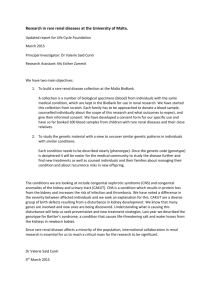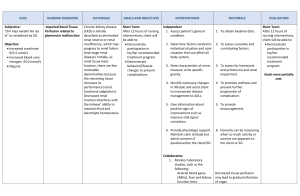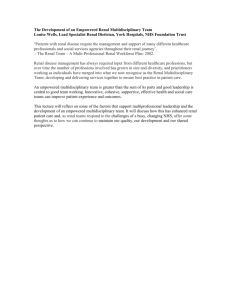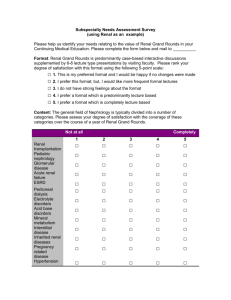B30(W) IMPROVING THE QUALITY OF COMMUNICATION AND
advertisement
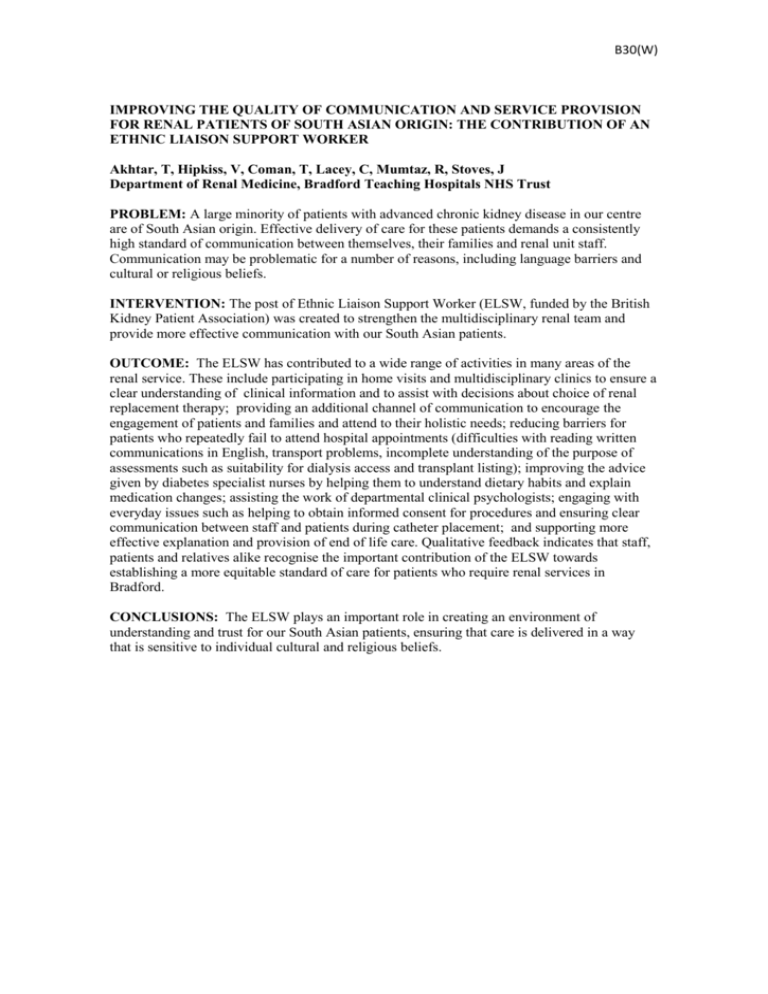
B30(W) IMPROVING THE QUALITY OF COMMUNICATION AND SERVICE PROVISION FOR RENAL PATIENTS OF SOUTH ASIAN ORIGIN: THE CONTRIBUTION OF AN ETHNIC LIAISON SUPPORT WORKER Akhtar, T, Hipkiss, V, Coman, T, Lacey, C, Mumtaz, R, Stoves, J Department of Renal Medicine, Bradford Teaching Hospitals NHS Trust PROBLEM: A large minority of patients with advanced chronic kidney disease in our centre are of South Asian origin. Effective delivery of care for these patients demands a consistently high standard of communication between themselves, their families and renal unit staff. Communication may be problematic for a number of reasons, including language barriers and cultural or religious beliefs. INTERVENTION: The post of Ethnic Liaison Support Worker (ELSW, funded by the British Kidney Patient Association) was created to strengthen the multidisciplinary renal team and provide more effective communication with our South Asian patients. OUTCOME: The ELSW has contributed to a wide range of activities in many areas of the renal service. These include participating in home visits and multidisciplinary clinics to ensure a clear understanding of clinical information and to assist with decisions about choice of renal replacement therapy; providing an additional channel of communication to encourage the engagement of patients and families and attend to their holistic needs; reducing barriers for patients who repeatedly fail to attend hospital appointments (difficulties with reading written communications in English, transport problems, incomplete understanding of the purpose of assessments such as suitability for dialysis access and transplant listing); improving the advice given by diabetes specialist nurses by helping them to understand dietary habits and explain medication changes; assisting the work of departmental clinical psychologists; engaging with everyday issues such as helping to obtain informed consent for procedures and ensuring clear communication between staff and patients during catheter placement; and supporting more effective explanation and provision of end of life care. Qualitative feedback indicates that staff, patients and relatives alike recognise the important contribution of the ELSW towards establishing a more equitable standard of care for patients who require renal services in Bradford. CONCLUSIONS: The ELSW plays an important role in creating an environment of understanding and trust for our South Asian patients, ensuring that care is delivered in a way that is sensitive to individual cultural and religious beliefs.


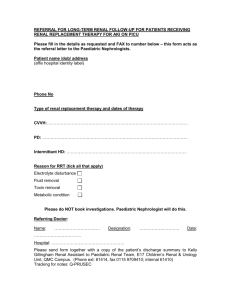
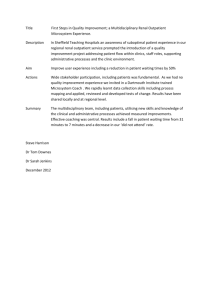
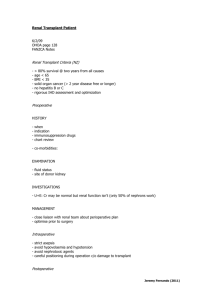
![hpkaG ]]^_G {aG jG yG kG G uG tG pG... jT}GtG G G G](http://s2.studylib.net/store/data/014761897_1-0a36c5ee73ccaef14dd1c5fca99f70c4-300x300.png)
